- CMS: Medicare Program; Implementation of Prior Authorization for Select Services for the Wasteful and Inappropriate Services Reduction (WISeR) Model
- Public Inspection: CMS: Medicare Program: Implementation of Prior Authorization for Select Services for the Wasteful and Inappropriate Services Reduction Model
- CMS: Secretarial Comments on the CBE's (Battelle Memorial Institute) 2024 Activities: Report to Congress and the Secretary of the Department of Health and Human Services
- HHS: Patient Protection and Affordable Care Act: Marketplace Integrity and Affordability
- HRSA Announces Action to Lower Out-of-Pocket Costs for Life-Saving Medications at Health Centers Nationwide
- Public Inspection: HHS: Patient Protection and Affordable Care Act: Marketplace Integrity and Affordability
- Increased Risk of Cyber Threats Against Healthcare and Public Health Sector
- Eight Hospitals Selected for First Cohort of Rural Hospital Stabilization Program
- Announcing the 2030 Census Disclosure Avoidance Research Program
- CMS: Medicare Program; Hospital Inpatient Prospective Payment Systems for Acute Care Hospitals and the Long-Term Care Hospital Prospective Payment System and Policy Changes and Fiscal Year 2026 Rates; Requirements for Quality Programs; and Other Policy Changes; Correction
- CMS: Medicare Program; Hospital Inpatient Prospective Payment Systems for Acute Care Hospitals and the Long-Term Care Hospital Prospective Payment System and Policy Changes and Fiscal Year 2026 Rates; Requirements for Quality Programs; and Other Policy Changes; Correction
- CMS: Medicare and Medicaid Programs; Contract Year 2026 Policy and Technical Changes to the Medicare Advantage Program, Medicare Prescription Drug Benefit Program, Medicare Cost Plan Program, and Programs of All-Inclusive Care for the Elderly; Correction
- CMS: Medicare and Medicaid Programs; Contract Year 2026 Policy and Technical Changes to the Medicare Advantage Program, Medicare Prescription Drug Benefit Program, Medicare Cost Plan Program, and Programs of All-Inclusive Care for the Elderly; Correction
- CMS: Medicare Program; Prospective Payment System and Consolidated Billing for Skilled Nursing Facilities; Updates to the Quality Reporting Program for Federal Fiscal Year 2026
- CMS: Medicare Program; FY 2026 Hospice Wage Index and Payment Rate Update and Hospice Quality Reporting Program Requirements
CDC Publications Warehouse Closing: Last Chance to Order Printed CDC Materials!

Pursuant to a decision made in 2024, the Centers for Disease Control and Prevention (CDC) is announcing the upcoming closure of the CDC Publications Warehouse in September 2025. As we prepare for this transition, we want to ensure that our valuable resources are utilized effectively by our partners and grantees.
Key Details:
- Closure Date: September 2025
- Final Order Deadline: August 15, 2025
Please note that while we will no longer provide printed materials through this service, electronic versions will continue to be available at www.cdc.gov.
Action:
We encourage all CDC partners and grantees to take advantage of this opportunity to order printed publications that can aid in your health promotion efforts. Our materials cover a wide range of topics, including disease prevention, health education, and community health initiatives. There is no cost to order.
How to Order:
Visit the CDC Publications Warehouse website at CDC Publications On Demand to browse our catalog and place your orders before the August 15 deadline.
We appreciate your continued partnership and commitment to public health. Together, we can ensure that these important resources reach those who need them most.
States Ranked by Potential Coverage Losses under Medicaid Work Requirements
From Becker’s Hospital Review
California is projected to experience the largest potential losses in Medicaid coverage if federal work requirements are enacted, according to an analysis released by the Urban Institute on April 14.
Approximately five million adults across the country could lose Medicaid coverage next year under a possible federal mandate requiring adults aged 19 to 55 in Medicaid expansion states to work. At least 10,000 adults in nearly every expansion state could lose coverage, with the largest losses occurring in the most populous states.
These coverage reductions are likely to stem from a lack of awareness or confusion about the new policy, rather than from enrollees failing to work. The extent of the losses could also vary depending on the final policy and how each state implements the work requirements.
The study examined a proposal that would withhold federal funds for adult Medicaid enrollees in expansion states who do not report working at least 80 hours per month, or who do not meet exemption criteria such as being a student, caregiver, or having a disability. Similar legislation has been proposed in several states this year.
States ranked by potential coverage losses under Medicaid work requirements:
- California: 1 to 1.2 million
- New York: 743,000 to 846,000
- Illinois: 193,000 to 220,000
- Pennsylvania: 174,000 to 198,000
- North Carolina: 171,000 to 195,000
- Arizona: 166,000 to 189,000
- Ohio: 158,000 to 180,000
- Michigan: 145,000 to 165,000
- Washington: 121,000 to 138,000
- Kentucky: 120,000 to 136,000
- Louisiana: 116,000 to 132,000
- New Jersey: 115,000 to 131,000
- Indiana: 102,000 to 116,000
- Virginia: 98,000 to 111,000
- Maryland: 95,000 to 109,000
- Colorado: 95,000 to 108,000
- Massachusetts: 86,000 to 98,000
- Oregon: 83,000 to 95,000
- New Mexico: 75,000 to 86,000
- Connecticut: 74,000 to 85,000
- Missouri: 69,000 to 78,000
- Minnesota: 67,000 to 76,000
- Arkansas: 62,000 to 70,000
- Nevada: 59,000 to 67,000
- Oklahoma: 47,000 to 53,000
- West Virginia: 38,000 to 44,000
- Iowa: 34,000 to 39,000
- District of Columbia: 26,000 to 30,000
- Rhode Island: 25,000 to 29,000
- Hawaii: 24,000 to 27,000
- Montana: 23,000 to 27,000
- Utah: 20,000 to 23,000
- Idaho: 17,000 to 20,000
- Delaware: 17,000 to 20,000
- New Hampshire: 17,000 to 19,000
- Nebraska: 13,000 to 15,000
- Maine: 11,000 to 13,000
- Alaska: 10,000 to 11,000
- South Dakota: 8,000 to 9,000
- Vermont: 7,000 to 8,000
- North Dakota: 5,000 to 6,000
New Review Published on Effect of Telehealth on Cost of Health Care during the COVID-19 Pandemic
A sudden increase in telehealth use occurred after the declaration of the COVID-19 public health emergency (PHE), which led to the easement and removal of barriers to telehealth usage as well as modifications to payment policies for telehealth reimbursement. The PHE provided an opportunity to assess telehealth’s impact on health care costs for payers and patients. We conducted a systematic review in 2023 to understand the impact of telehealth use on health care costs during the COVID-19 pandemic across health conditions and telehealth modalities. An updated search – in November 2023 – followed the same search strategy and methods as the initial systematic review.
Of 820 citations identified in the new search, 6 met the inclusion criteria for review. Most of the studies used a retrospective observational design to identify the differences in costs between the telehealth group and the comparator group. Three studies were conducted within the U.S. and three were conducted internationally. As with the first search, the conditions addressed and costs measured were heterogeneous. Overall, conclusions – consistent with the first review – add to the evidence that telehealth modalities are cost-saving compared to traditional in-person care at a patient perspective and can provide clinic efficiency gains and increases in billing revenue from the health care payer perspective.
Please click here to read the brief.
Rural Telehealth Research Center, University of Iowa, 200 Hawkins Drive, 1008 RCP, Iowa City, IA 52242, Email: rtrc-inquiry@uiowa.edu, www.ruraltelehealth.org
All of Us Expands Its Rural Reach
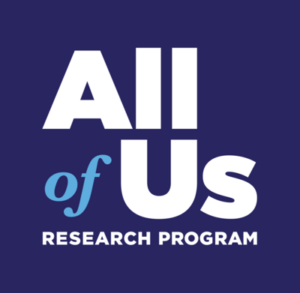
The NIH’s All of Us national population health program is increasing its rural presence.
Where you live affects how you feel. Because everything around you contributes to your health. That includes the food you eat, the places where you spend your days, and the air you breathe. Or how far you live from medical care.
That is a central idea of the All of Us Research Program. Enrolling people from different backgrounds and neighborhoods is the key to precision medicine.
People who live in rural areas have unique experiences to share. All of Us already has more than 70,000 participants who live in rural areas. That’s about 9% of our participants. But 20% of people in the United States live in rural areas. So we know we can do more.
The Heartland Consortium is a new group of All of Us enrollment partners in four Midwestern states. The group came together last year and is already enrolling people in All of Us.
To learn more about All of Us, click here.
CMS is Extending Medicaid Unwinding Data Reporting
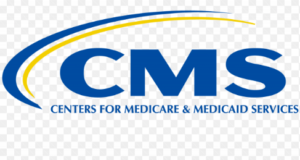 The Centers for Medicare & Medicaid Services (CMS) issued this letter to inform Medicaid agencies that CMS is extending current state reporting requirements for certain metrics contained in the Unwinding Data Report. Monthly state reporting about renewal actions occurring on or after July 1, 2024, and fair hearing requests that have been pending for more than 90 days, will continue on an ongoing basis. CMS will continue reporting data publicly to maintain transparency into Medicaid and CHIP renewal outcomes at the national and state levels. Medicaid is an important source of insurance coverage in rural areas. The unwinding of the continuous Medicaid coverage provision has resulted in over 22 million enrollees being disenrolled as of May 23, 2024 and over 49 million have had their coverage renewed.
The Centers for Medicare & Medicaid Services (CMS) issued this letter to inform Medicaid agencies that CMS is extending current state reporting requirements for certain metrics contained in the Unwinding Data Report. Monthly state reporting about renewal actions occurring on or after July 1, 2024, and fair hearing requests that have been pending for more than 90 days, will continue on an ongoing basis. CMS will continue reporting data publicly to maintain transparency into Medicaid and CHIP renewal outcomes at the national and state levels. Medicaid is an important source of insurance coverage in rural areas. The unwinding of the continuous Medicaid coverage provision has resulted in over 22 million enrollees being disenrolled as of May 23, 2024 and over 49 million have had their coverage renewed.
Pennsylvania Human Services Department’s Website Update in Process
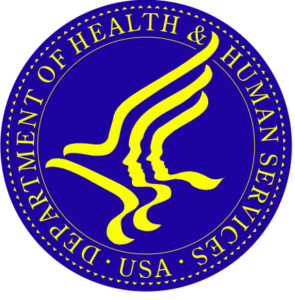 In partnership with the Governor’s Office and the Commonwealth’s web development vendor, the Department of Human Services (DHS) is moving to a new public-facing website platform. Deployment of the new platform began the evening of Tuesday, May 28. This transition will only affect dhs.pa.gov, and will not affect COMPASS, CWIS, PROMISe, PELICAN, or any other custom developed platforms. With a project of this size, DHS anticipates there could be some errors, potential disruptions, and growing pains. DHS is working closely with the Governor’s Office and the web development vendor and will be triaging and correcting issues as they are identified. If providers and partners experience any functional disruption, error, and/or are unable to access essential business content or services, please report them via the DHS Feedback Form under “Website Feedback” – the first option. Check your bookmarks for updates.
In partnership with the Governor’s Office and the Commonwealth’s web development vendor, the Department of Human Services (DHS) is moving to a new public-facing website platform. Deployment of the new platform began the evening of Tuesday, May 28. This transition will only affect dhs.pa.gov, and will not affect COMPASS, CWIS, PROMISe, PELICAN, or any other custom developed platforms. With a project of this size, DHS anticipates there could be some errors, potential disruptions, and growing pains. DHS is working closely with the Governor’s Office and the web development vendor and will be triaging and correcting issues as they are identified. If providers and partners experience any functional disruption, error, and/or are unable to access essential business content or services, please report them via the DHS Feedback Form under “Website Feedback” – the first option. Check your bookmarks for updates.
Analyzing the Latest Alcohol Death Data and Change Over the Last Decade

The health policy nonprofit, KFF, used data from CDC WONDER to examine trends in death caused by alcohol from 2012-2022. The report finds that deaths were highest among people aged 45 to 64, males, people living in rural areas, and American Indian/Alaska native people. Rural areas experienced faster growth in alcohol deaths, driven by sharp rises during the pandemic.
Understanding HRSA Modifications to the Definition of Rural for FORHP Grants
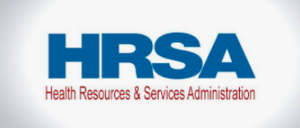 – Comment by May 28. On April 26th, the Federal Office of Rural Health Policy (FORHP) announced a proposed modification to the definition of ‘rural’ used to designate eligible areas for rural health grants. Because access to needed health care is likely to be reduced when roads are most difficult to traverse, FORHP proposes to modify the definition of rural areas by integrating the new Road Ruggedness Scale (RRS) released in 2023 by the Economic Research Service (ERS) of the U.S. Department of Agriculture. The proposed modifications are based on a data-driven methodology to identify areas with difficult mountainous terrain. All areas included in the current definition of rural would remain included.
– Comment by May 28. On April 26th, the Federal Office of Rural Health Policy (FORHP) announced a proposed modification to the definition of ‘rural’ used to designate eligible areas for rural health grants. Because access to needed health care is likely to be reduced when roads are most difficult to traverse, FORHP proposes to modify the definition of rural areas by integrating the new Road Ruggedness Scale (RRS) released in 2023 by the Economic Research Service (ERS) of the U.S. Department of Agriculture. The proposed modifications are based on a data-driven methodology to identify areas with difficult mountainous terrain. All areas included in the current definition of rural would remain included.
Reimagine Rural is Back For Season 2!
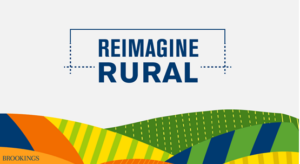
The Reimagine Rural podcast is back for a new season! Join Brookings Senior Fellow Tony Pipa for a journey into the heart of rural America, where changemakers are propelling their communities toward new opportunities and equitable prosperity.
Through illuminating conversations with local leaders, Pipa explores the transformative shifts, underlying challenges, and intricate nuances shaping rural development today. This season covers the revitalization of manufacturing, innovative approaches to housing, the expansion of broadband connectivity, and more.
🎧 Listen to episodes one and two, and follow the show on your preferred listening platform to stay updated on the latest episodes.
More about the work
Reimagine Rural is more than just a podcast; The Reimagining Rural Policy initiative at Brookings brings engaging narratives and in-depth analyses that provide a comprehensive view of the policies and trends shaping real-world rural development.
About Brookings
The Brookings Institution is a nonprofit organization based in Washington, D.C. Our mission is to conduct in-depth, nonpartisan research to improve policy and governance at local, national, and global levels.
Updates to the CMS Portal Requirements for Identity Proofing Published

The Remote Identity Proofing (RIDP) process for CMS Portal accounts will be changing this coming August. Beginning August 15th, 2023, you will be required to provide your personal information for verification, including your social security number which in the past was optional.
What data will be required from users during the Remote Identity Proofing (RIDP) process?
- Users will need to submit the following personal information for verification:
- Social security number (required),
- Full legal name (First name, last name, no nicknames)
- Current home residence
- Primary phone number (mobile preferred)
- Date-of-birth
- Personal email address
Business information will not be able to be used to identity proof of an individual
Who is impacted by this?
- New users who are creating a CMS Portal account for the first time and requesting a role (MLMS, Salesforce, etc.)
- Existing CMS Portal account user requesting a new role
If you have questions about your account or the process, please contact cacquestions@cms.hhs.gov.
